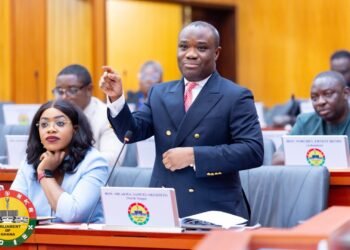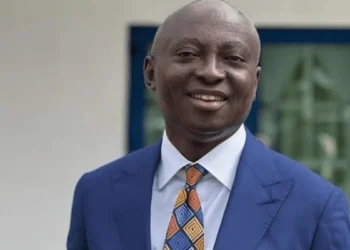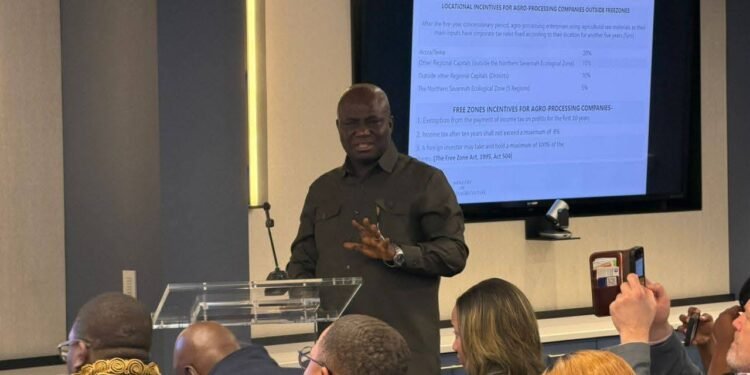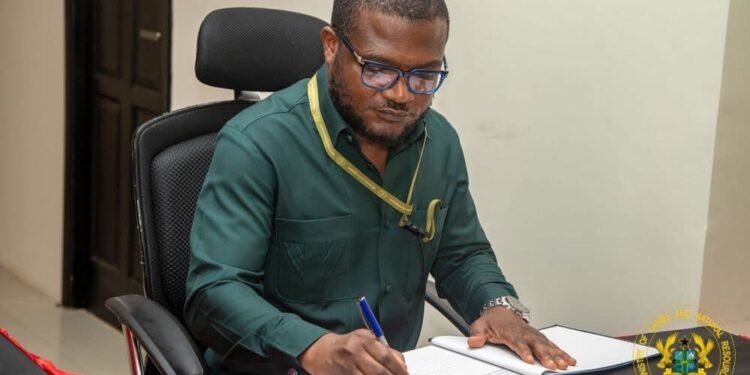Professor Baffour Agyeman-Duah, a co-founder of the Centre for Democratic Development (CDD-Ghana), has raised serious concerns about the practice of democracy in Ghana, arguing that it is hindering the country’s development.
Speaking with a sense of urgency and deep reflection, the former Senior Governance Advisor to the United Nations emphasized that while democracy is a necessary system of governance, its current implementation in Ghana is deeply flawed and counterproductive.
In a recent interview, Prof. Agyeman-Duah expressed his concerns about the stagnation in Ghana’s development, attributing it to the structure and practice of its democracy. He emphasized that democracy is not just about holding elections every four years but involves a broader spectrum of governance that needs to be reevaluated.
“We have to be democratic, but the way we have structured our democracy, the way we are practicing it, it is killing us,” Prof. Agyeman-Duah stated, highlighting the need for a more dynamic approach to governance that addresses the nation’s pressing issues.
In his critique, Prof. Agyeman-Duah did not question the value of democracy itself but rather the specific way it is being practiced in Ghana. He highlighted that democracy, though essential for any nation’s growth, must be adapted to the unique context and needs of the country.
Prof. Agyeman-Duah criticized that Ghana’s strict adherence to predefined democratic processes without considering their effectiveness or relevance to the local context can be detrimental.
Need for Economic Self-Reliance
In addition to his critique of Ghana’s democratic practice, Prof. Agyeman-Duah also urged Ghanaians to shift their focus towards building a self-reliant economy. He urged Ghanaians to move away from fruitless debates over historical founding figures and instead concentrate on building a robust, self-sustaining economy.
“The history books make it clear how the nation was founded and focusing attention on who did what is not the way to go,” he stated.
Prof. Agyeman-Duah highlighted the importance of developing an economy that is less dependent on the global market and more focused on leveraging Ghana’s natural resources.
Prof. Agyeman-Duah acknowledged the challenges Ghana’s economy has faced over the years, noting that it has been “wobbling for the past many years” and that the situation appears to be more challenging now than ever before.
Despite this, he believes that Ghana has the potential to build a more independent and self-sustaining economy.
The CEO of the John Agyekum Kufuor Foundation echoed these sentiments, calling for a strategic shift towards developing an economy less reliant on the global market.
This call for economic self-reliance reflects a broader concern about the vulnerability of Ghana’s economy to external shocks. By focusing on areas where Ghana has a competitive advantage, such as agriculture, mining, and other natural resources, the country can reduce its dependence on the global economy and build a more resilient economic foundation.
Prof. Baffour Agyeman-Duah’s critique of Ghana’s democratic practice and his call for economic self-reliance is timely and thought-provoking. His observations challenge the status quo and urge Ghanaians to rethink the way they approach both governance and economic development.
While democracy remains an essential system of governance, it must be adapted to the specific needs and context of the country. Similarly, economic self-reliance is crucial for Ghana’s long-term stability and growth.
As Ghana navigates its path forward, the perspectives offered by Prof. Baffour Agyeman-Duah serve as a reminder of the critical intersections between effective governance and sustainable economic growth.
The challenge lies in harnessing the lessons from his critique to foster a more progressive and resilient democracy and economy, ensuring that Ghana’s future generations inherit a nation that is both democratic and economically vibrant.
READ ALSO: Ghana’s Government Borrows GH¢115.77bn in Early 2024 as Interest Rates Plummet























